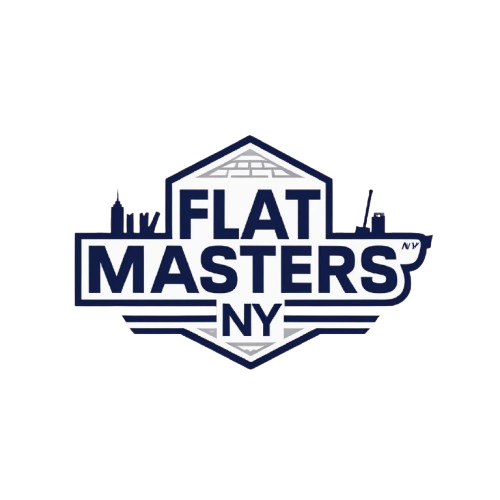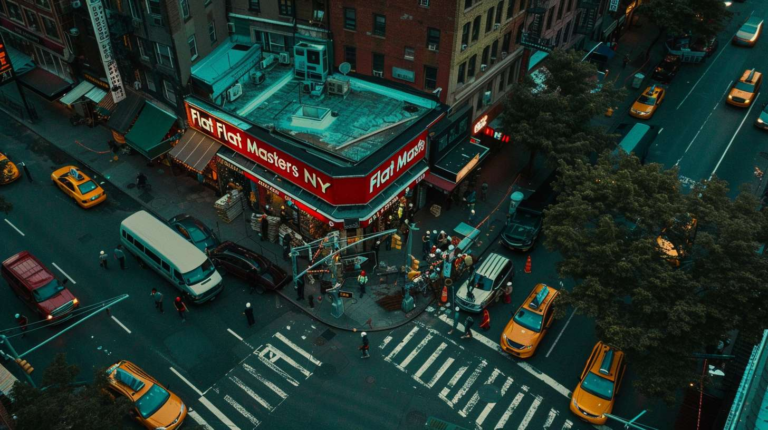What Are Flat Roof Houses Called? Your Complete Guide
After installing flat roofs across Queens for over two decades, I get asked this question more than you'd think. Flat roof houses are called contemporary homes, modern homes, or simply flat-roofed buildings - there's no single special name for them, though architects sometimes use terms like "prairie style" or "international style" depending on the specific design.
Look, I've worked on everything from sleek Astoria condos to converted warehouses in Long Island City, and the terminology really depends on who's talking. Real estate agents love calling them "contemporary" or "modern architectural homes." We contractors? We just call them flat roof jobs.
Common Names for Flat Roof Houses
Here's what you'll actually hear people call these buildings around Queens:
- Contemporary homes - Most common term used by real estate folks
- Modern homes - Usually refers to clean, minimalist designs
- Prairie style houses - Frank Lloyd Wright influence, popular in some neighborhoods
- International style buildings - More of an architectural term
- Industrial-style homes - Especially converted warehouses
- Minimalist homes - Clean lines, simple designs
But honestly? Most people just say "that house with the flat roof" and everyone knows exactly what they mean.
Why the Confusion About Names?
The thing is, flat roofs aren't tied to one specific architectural style. I've installed EPDM on everything from 1960s ranch conversions to brand new luxury builds in Flushing. Last month alone, we did three completely different styles - a converted commercial building on Northern Boulevard, a new construction contemporary in Bayside, and a mid-century modern renovation in Forest Hills.
The roof shape doesn't define the house style - it's just one element. You can have a flat roof on a colonial revival, a contemporary box, or even a craftsman-inspired home. That's why there's no single name.
Architectural Styles That Often Feature Flat Roofs
Prairie Style: These are the Frank Lloyd Wright-inspired homes with horizontal lines and overhanging eaves. We see quite a few in the more established neighborhoods of Queens.
International Style: Clean, geometric, usually white or light colors. Popular in new developments, especially around Astoria and Long Island City where developers are going for that modern look.
Contemporary/Modern: This is where it gets messy because people use these terms interchangeably. Generally means current design trends with clean lines, large windows, and minimal ornamentation.
Industrial Style: Converted warehouses, lofts, buildings that embrace their commercial origins. Big in areas like Long Island City where old industrial buildings get residential conversions.
Regional Terminology Differences
Here's something interesting I've noticed working across the five boroughs - terminology changes depending on where you are. In Manhattan, everything's a "modern residence." In Queens, people are more likely to say "contemporary home." Out in Long Island, they often stick with "ranch style with flat roof modification."
The salt air from the East River and Flushing Bay doesn't care what you call your house, but it sure affects how we approach the roofing materials. I always recommend modified bitumen or TPO for our climate - EPDM works too but requires more maintenance with our temperature swings.
What Really Matters: The Roof System
Look, I don't care what you call your house - what matters is whether that flat roof is properly designed and installed. And here in Queens, with our weather patterns, that's crucial.
A flat roof house is called whatever the owner wants to call it, but it better have proper drainage. I can't tell you how many times I've been called out to "contemporary homes" where the previous contractor didn't understand basic water flow principles.
Most flat roofs in Queens residential applications use either EPDM rubber, TPO, or modified bitumen systems. The newer luxury developments often go with TPO for the energy efficiency - those white membranes reflect heat like crazy, which matters when you're trying to cool a house in July.
Common Misconceptions About Flat Roof Houses
People think flat roof houses are some exotic architectural marvel. Reality check - they're just practical. Easier to install HVAC equipment, simpler construction, more interior space since you don't lose square footage to pitched roof angles.
The biggest misconception? That they're "maintenance-free" compared to pitched roofs. Wrong. They require different maintenance, not less maintenance. Drainage is everything with flat roofs.
Another thing - people assume all flat roof houses leak. Only the poorly installed ones leak. A properly installed flat roof with good drainage and quality materials will last 20-30 years without major issues.
Popular Flat Roof House Styles in Queens
From my experience working neighborhoods from Astoria to Jamaica, here's what's popular:
The Contemporary Box: Clean lines, large windows, usually two stories. Popular in new construction, especially infill lots where developers maximize square footage.
Mid-Century Modern Renovations: Taking those 1950s-60s ranch houses and adding flat roof sections, often for additions or complete makeovers.
Industrial Conversions: Old commercial buildings turned residential. These require serious structural analysis before we even think about roofing work.
The converted commercial buildings are interesting projects. Last year we did a former auto shop in Maspeth that got turned into a single-family home. Beautiful space, but required completely redesigning the drainage system.
Technical Considerations for Flat Roof Houses
Here's where my contractor brain kicks in - what you call your house matters less than whether it's built right.
Drainage slopes are critical. Even "flat" roofs need minimum 1/4 inch per foot slope toward drains. I've seen too many "contemporary homes" where the architect prioritized looks over function.
Insulation placement matters more on flat roofs than pitched roofs. We typically use rigid foam insulation above the deck, then the membrane system on top. Keeps the thermal envelope continuous and prevents condensation issues.
And here's something most people don't think about - flat roof houses often have more complex flashing details around parapets, equipment penetrations, and roof edges. That's where problems start if the installation isn't done right.
Why Flat Roofs Are Popular in Urban Areas
Queens real estate is expensive. Flat roofs maximize interior space - no lost square footage to angled ceilings. Plus, you can potentially add rooftop access for decks or gardens, though that requires proper planning and permits.
They're also easier for mechanical equipment installation. HVAC units, solar panels, satellite dishes - everything's more accessible on a flat roof. We work with HVAC contractors regularly on these installations.
But the main reason? They look modern without being too avant-garde for conservative neighborhoods. A flat roof contemporary home fits into Queens better than some wild architectural experiment.
Maintenance Reality for Flat Roof Houses
Whatever you call your flat roof house, here's what you need to know about upkeep:
Drainage cleaning twice yearly, minimum. Leaves, debris, even tennis balls - everything ends up on flat roofs. Clogged drains equal water problems, guaranteed.
Annual professional inspections. I tell all my customers this - small problems become big problems fast with flat roofs. A $200 repair becomes a $2,000 problem if ignored.
Membrane repairs should be done immediately. Flat roof membranes are tough, but once water gets under them, damage spreads quickly.
Getting the Right Professional Help
Whether your flat roof house is called a contemporary home, modern residence, or Bob's place, you need a contractor who understands flat roof systems specifically.
At Flat Masters NY, we've been specializing in flat roofs across Queens since 2003. Licensed, insured, and we know the local building codes inside out. We've worked on everything from small residential contemporary homes to large commercial flat roof installations.
The name doesn't matter - the quality of work does. And in Queens, with our weather extremes and aging building stock, you need someone who understands both the technical requirements and local challenges.
So what are flat roof houses called? Whatever you want to call them - just make sure the roof over your head is installed right. Because at the end of the day, good roofing keeps you dry regardless of architectural terminology.


